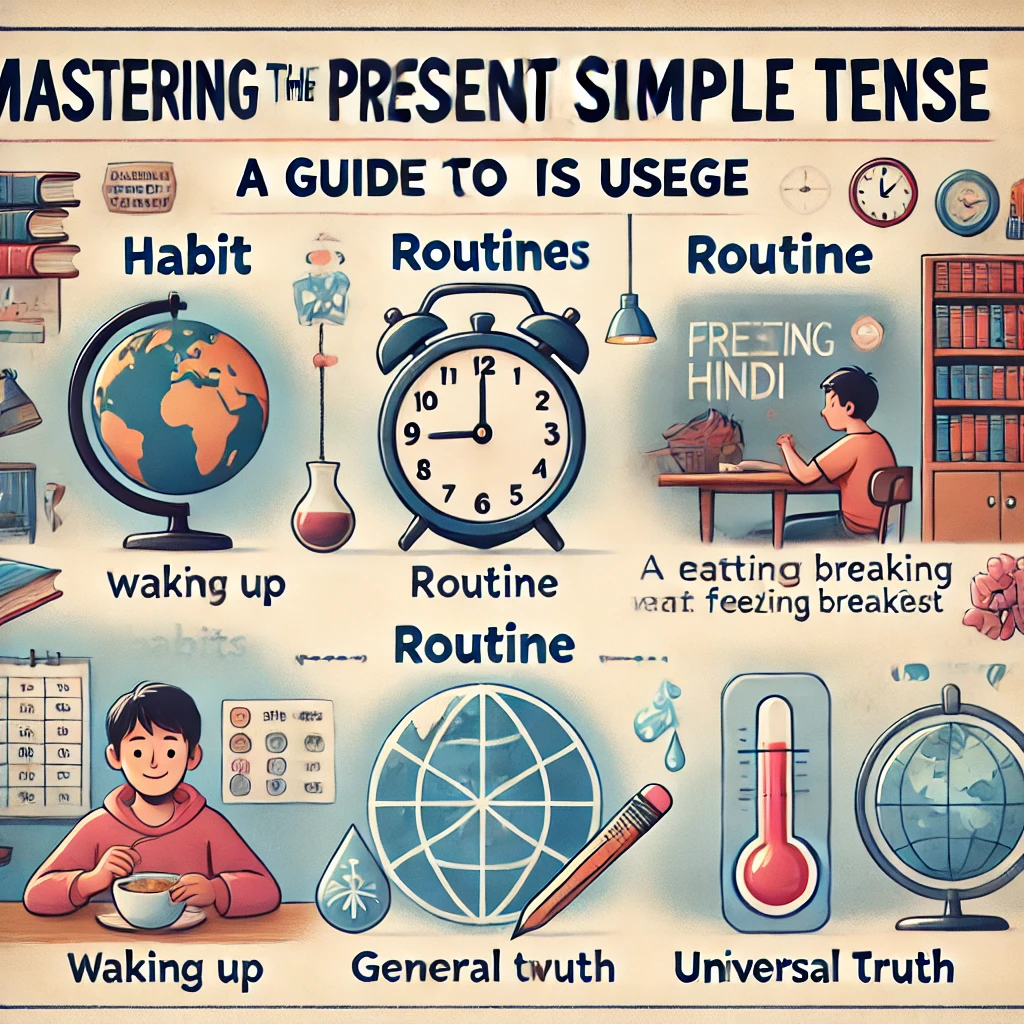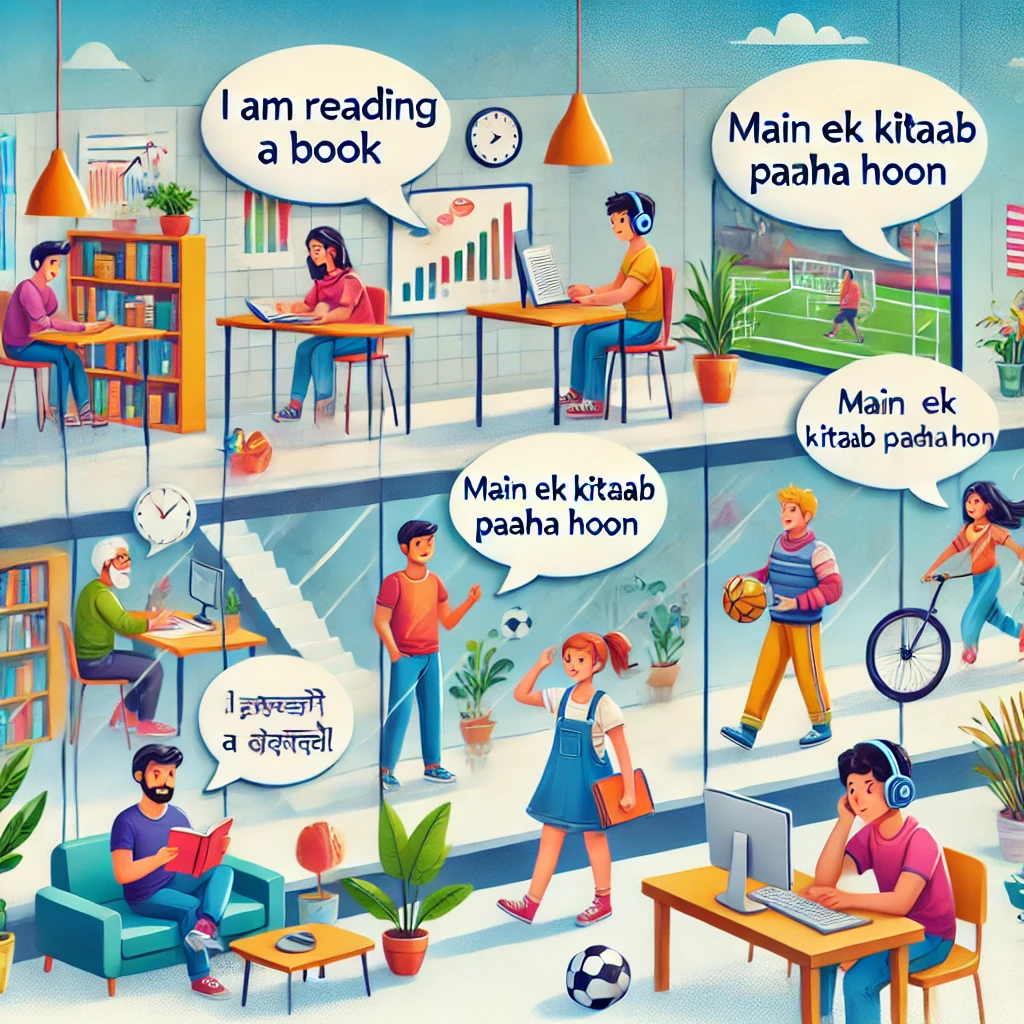Title:Unlocking Fluency: Past Perfect Continuous for Rural Indian English Learners
Hindi Explanation:
पिछला पूर्ण निरंतर काल (Past Perfect Continuous Tense) अंग्रेजी भाषा में दक्षता बढ़ाने में बहुत महत्वपूर्ण भूमिका निभाता है। यह काल दर्शाता है कि कोई कार्य अतीत के किसी विशिष्ट समय से पहले से ही चल रहा था और वह कार्य उस समय तक जारी था। यह काल, विशेष रूप से, अतीत के घटनाक्रमों को जोड़ने और उनके बीच के संबंध को स्पष्ट करने में मदद करता है। ग्रामीण परिवेश के बच्चों के लिए, जहाँ अंग्रेजी सीखने के अवसर सीमित हो सकते हैं, यह काल उनके विचारों को सटीक और प्रभावी ढंग से व्यक्त करने में मदद करता है। इस काल के नियमित अभ्यास से, विद्यार्थी अंग्रेजी में अधिक जटिल वाक्यों का निर्माण कर सकते हैं, जिससे उनकी लेखन और बोलने की क्षमता में सुधार आता है। यह काल समझने से, वे अंग्रेजी साहित्य और फिल्मों को भी बेहतर ढंग से समझ पाएंगे। संक्षेप में, पिछला पूर्ण निरंतर काल अंग्रेजी भाषा के गहन ज्ञान और तरलता के लिए एक महत्वपूर्ण कदम है।
English Explanation:
Mastering the Past Perfect Continuous tense significantly enhances English proficiency for non-native speakers, particularly those from rural backgrounds with limited exposure to the language. This tense showcases an action ongoing before a specific point in the past, highlighting its duration. It's crucial for connecting past events and clarifying their relationships, something often challenging for learners. For rural Indian children, where English learning opportunities might be scarce, it allows for nuanced expression of thoughts and ideas. Consistent practice strengthens their ability to construct complex sentences, improving both written and spoken fluency. Understanding this tense also improves comprehension of English literature and films, enriching their overall understanding. In essence, the Past Perfect Continuous is a pivotal step towards achieving deeper English language mastery and fluency.
| English | Hindi | Roman Hindi |
|---|---|---|
| I had been studying English for five years before I moved to the city. | शहर जाने से पहले मैं पाँच साल से अंग्रेज़ी पढ़ रहा था। | Shahar jaane se pahle main paanch saal se angrezi padh raha tha. |
| She had been waiting for the bus for an hour when it finally arrived. | जब बस आखिरकार आई, तब वह एक घंटे से इंतज़ार कर रही थी। | Jab bus akhikar aayi, tab vah ek ghante se intezaar kar rahi thi. |
| They had been playing cricket since morning. | वे सुबह से क्रिकेट खेल रहे थे। | Ve subah se cricket khel rahe the. |
| We had been working on the project for weeks before the deadline. | डेडलाइन से पहले हम हफ़्तों से प्रोजेक्ट पर काम कर रहे थे। | Deadline se pahle hum hafton se project par kaam kar rahe the. |
| He had been teaching English for ten years before he retired. | रिटायर होने से पहले वह दस साल से अंग्रेज़ी पढ़ा रहा था। | Retire hone se pahle vah das saal se angrezi padha raha tha. |
| The children had been singing songs all afternoon. | बच्चे सारी दोपहर गाने गा रहे थे। | Bachche saari dopahar gaane ga rahe the. |
| The farmer had been ploughing the field since sunrise. | किसान सूर्योदय से खेत जोत रहा था। | Kisan suryodaya se khet jot raha tha. |
| The birds had been chirping merrily all morning. | पंछी सारी सुबह खुशी से चहचहा रहे थे। | Panchhi saari subah khushi se chhachha rahe the. |
| My grandmother had been knitting a sweater for weeks. | मेरी दादी हफ़्तों से स्वेटर बुन रही थीं। | Meri dadi hafton se sweater bun rahi thin. |
| The rain had been falling steadily all night. | सारी रात लगातार बारिश हो रही थी। | Saari raat lagatar barish ho rahi thi. |





